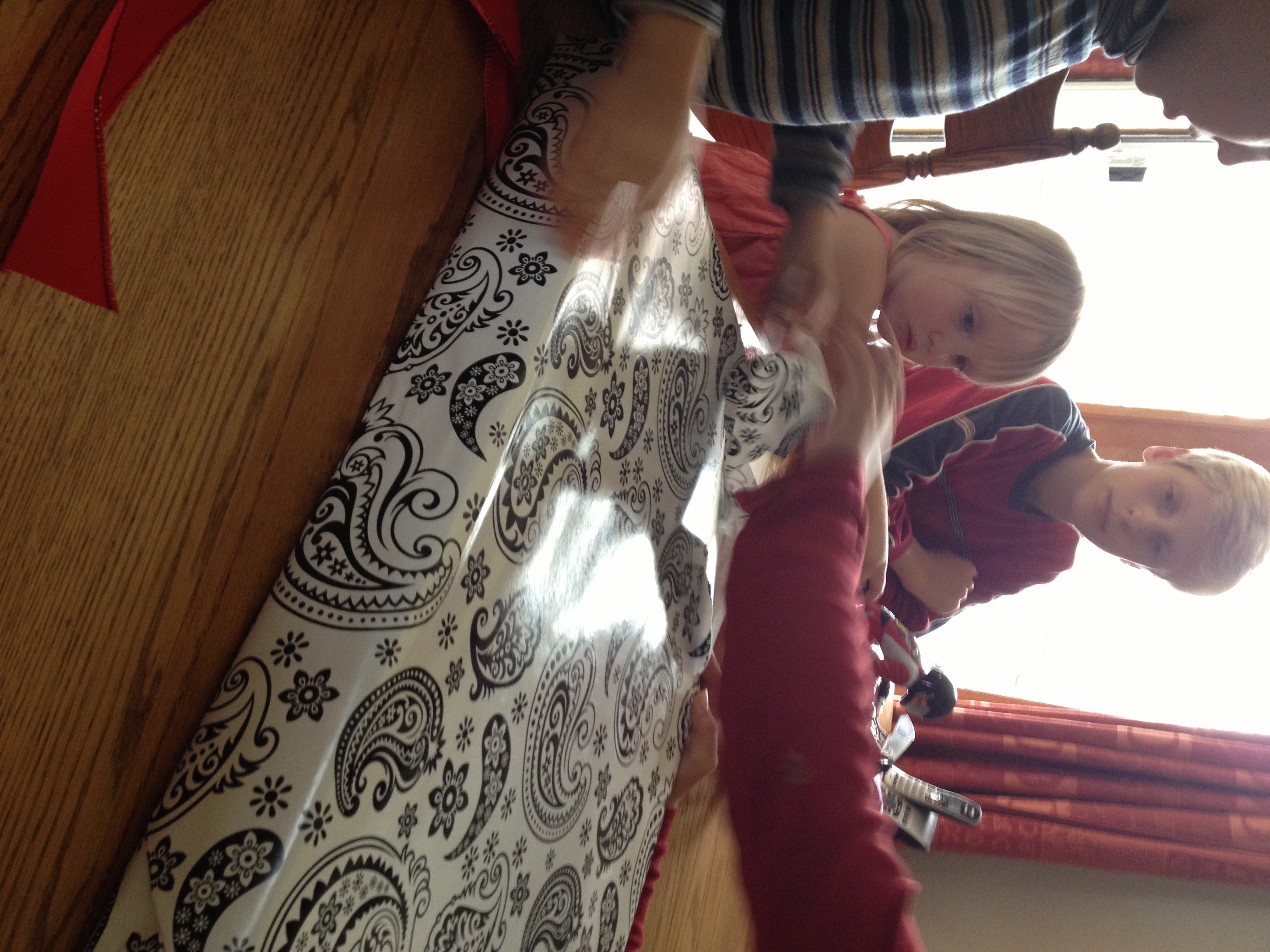
Get your child to graduate from home with a 10,000 hour talent and you won’t have to say one of these three dreadful attaboys:
- I’m just grateful he has a job.
- Bless his heart, he’s trying.
- At least he’s not doing drugs.
talent building and planning

Get your child to graduate from home with a 10,000 hour talent and you won’t have to say one of these three dreadful attaboys:
- I’m just grateful he has a job.
- Bless his heart, he’s trying.
- At least he’s not doing drugs.

For some parents, the real educational goal for their child may be to simply marry well or to avoid military enrollment as a last resort. For other parents, the real goal may be produce a son who becomes a successful entrepreneur rather than an employee. Or it may be to produce a daughter who is unusually proficient in the ministry of hospitality.
However, whichever of the many underlying reasons, many parents will still choose just one particular learning curriculum, very often a default MacGuffin goal of using that curriculum for getting into college for a liberal arts degree. In some cases it is not a mistake, when the goal is clearly understood.
But in general, a one size fits all solution is a mistake: a MacGuffin can be a very inefficient, expensive, and round-about way to achieving any of those examples mentioned earlier. Usually there is a much more efficient way to meet your true goals for your young person, assuming you know what your true goals are in the first place. So if you are not afraid, do a MacGyver with your child’s textbooks and homework assignments.
It’s your son. It’s your daughter. It’s time to take charge.
Looking for a way to get started with a real goal-setting exercise with your wife for your children’s coming educational year? Borrow ideas from Joshua Sheats’ podcast on how to set and achieve your financial goals in 2015
Most parents do not expect their children to be able to do better than they themselves did in life. They almost say it out loud and they certainly reinforce it with their attitude.
This expectation drives parents to try and lower their progeny’s youthful enthusiasm. This is when you hear such statements as “high school is the best time of your life so make it last as long as you can.” But all parents are not like that. A smaller group of parents is more hopeful that the best is yet to come and so they make plans for their children to enter into adulthood more prepared than they were. It is my guess that 80% of parents fall into the low expectations category and the other 20% of parents have serious hopes and plans that their children will do better. (By the way, I’m not bothering here to define what “better” is as that is a subject whose details I leave to you.)
Likely you are falling into that 20% of parents who have hopes about improving the lives of your descendants. Otherwise you would not be bothered to follow a blog, such as this one, on how to develop massive, life-changing talent starting early in life. But have you thought about rising into that even smaller, super-hopeful category of parents? Are you in that category?
I’m not speaking of that category of people who believe that they can get their children just achieve a little more success than they did. I’m speaking of those parents who believe they can DRAMATICALLY improve the adult outcome of their children’s lives. The size of that category of parents who believe and act on that belief of dramatic improvement is probably in the order of 2 out of 100 parents (that would represent 20% of the already 20% hopeful people). That sounds about right, doesn’t it? Imagine you are at a social mix of about 100 parents in one room. You would expect that most are just expecting their kids to do “okay” after high-school, or maybe they are not really thinking about their future at all and relieved they made it through the teenage years. You would expect that about two of ten people mingling in a corner will seem pretty upbeat talking about future possibilities for their son or daughter. Those are part of the hopeful twenty percenters and that is good. But in the entire group of 100 people, there would also be about two parents who have unusually high expectations for their children. Those two people would seem to truly believe they can pull off the kind of upbringing for their children that would have such dramatic ramifications.
If you are ready to roll up your sleeves with your spouse to generate some great ideas for your child’s future, I recommend you listen to a recent podcast by Joshua Sheats on how to set goals. Find a way to get yourself into that 20% of 20% parents who have concrete hope and very high expectations. You can print out his list of great prompts for you to use in your goal setting session and substitute your son’s name, instead of yours, in the suggested exercises.
2015 is going to be a great year.

Remain flexible as to which sub-skills you encourage your child to accumulate for his developing talent. This flexibility is to make sure your child is creating a talent that brings enough value to others that they would want to pay him to perform his talent. Your child will most likely need a set of skills that is different than what made a previous generation very successful in that same field of human activity. However as parents we can became fixated on a now defunct past glory and inadvertently encourage them to become uselessly excellent in a field that has since become over-abundant with the same ability. Don’t let the glory of a previous generation blind you to the new and better possibilities for your child.

Will 10,000 hours or 1o years of practice make your child an expert?
No, it will not make him an expert if he practices 10,000 hours of the same skill. You intuitively know this is why 10,000 hours or 10 years of working as a fast order cook would turn him into a worldwide famous master chef.
Yes, it will make him an expert if 10,000 hours of practice is broken down into separate skills that are continually added and chosen to push forward a particular talent. This is why extremely talented people often get started young (for a big time head start) with lots of caring guidance from parents and personal coaches (for careful choice of skills).
Talk specifically to your child about your personal strategy for developing his talent and explain the whys and hows of your thinking. Taking the time to explain out-loud your reasoning is a great way to model for him thinking patterns on how to plan for the future, even in the face of many unknowns. Sometimes talk with a big picture view of things, other times with just the near future in mind. If he is still very young, he will tend to not ask much, but just light up with excitement knowing that you are that interested in the details of his near and distant future. If he is older, you are going to see his commitment and decision making powers rev up because he knows his own father acts and moves forward even in the face of many unknown variables.
Do you sort-of-want it? or do you really want it? We are warned in the Bible about approaching God in matters that require wisdom with a half-baked desire to figure it out. We are told that God wants to give us wisdom, but we are also told that He will just as soon withhold it from us if we are timid about this whole affair of getting understanding. In short, He wants us to want wisdom like we really mean it. So if you are looking for wisdom on how to develop talent in your child’s life, are you REALLY wanting it with fire in your belly?
“Head down, pencil up” will get you into trouble as a parent planning for the future of your child if you don’t periodically look up to reassess how the market and culture is changing. Dan Miller, author of “48 Days to the Work You Love“, in one of his recent podcasts, describes a situation where a high level executive was suddenly let go after 26 years of employment in the same field. What was sad, is that even though the changes in the market place were obvious, he had not taken the time to lift his head up from the day to day of his work to see how changes would affect his career. He had made no plans of his own to deal with the change and now he is really out of time. Don’t do the same to your child – lift up your head today and start implementing those curriculum changes ASAP.

After graduation, do you want your son to have a job, a career, or a talent?
Here’s how to do it:
For a job – don’t plan for anything and hope he figures it all out after he’s 18.
For a career – suppress his uniqueness, load up on student loans, and have him study real hard following a traditional school curriculum or certified training program. Hope he gets hired by the corporate world so he can fit into the top of the predetermined pay band.
For a talent – start him young and have him keep combining skills in a way that is unusually effective, different, and pleasing to other people. Watch his passion carry through him into old age.

A talent should be made of up of not one, but several different skills: something old, something new, something borrowed, something blue.
An old recognized skill helps your daughter get started, a new skill that did not exist before helps your child break into the next generation of talent, and a skill borrowed from a completely different field will classify your child as someone with breakthrough insight. Add a skill that showcases and communicates your child’s amazing ability, and she will have a beautiful talent in blue.

The same small experience repeated over and over is what keeps an entry level job at the status of an entry level job. After a full year of work standing on her feet at a typical teenage job at McDonalds, there are probably only eight hours of added skill to the child’s life. The same principle applies when guiding your child into accumulating her 10,000 hours of talent development in household management: a daughter who is enthusiastically cooking, teaching, and helping her mom with home organization is not enough to build world-class talent. To be recognized as a future mother and wife who has taken the world of household management by storm, she would have to daily push the boundaries of her abilities with new tools and new ideas of management…until her performance appears magical to others, like that of the fictional Mary Poppins.

Christine was a very studious homeschooled girl who went to a prestigious college where she studied the classics of literature and got amazing grades. Her parents generously and sacrificially spent $120,000 of their hard earned money for that 4 year university degree. But where is she now? Now she’s stuck working in a small low-paying cafeteria job with no marketable skill. Consider how much happier she would be had her parents bucked conformity and spent instead the $120,000 developing her writing skill and her love of California history to such an extent that she made a generous living writing wildly popular and historically accurate Gold Rush themed scripts for downloadable Murder Mystery Dinner parties.

Is your child’s future being short-changed by a hobby?
Are you not expecting that your son’s future will be supported by his current soccer-meets?
Then your child is developing a soccer hobby, not a talent.
Are you not expecting that your son will make a living by swimming for endorsements?
Then your child is developing a swim hobby, not a talent.
Are you not expecting that your daughter’s future will be spent doing gymnastics on bars?
Then your child is developing a gymnastics hobby, not a talent.

Working for someone else and being micro-managed by another person can and will pay the basic bills, but wouldn’t it be better to be the leader in a particular field of talent? Get your son or daughter started today on building a unique talent. They can be the ones who rule in a particular sphere of life instead of being forced to work for others at low wages.
Proverbs 12:24
“The hand of the diligent will rule,
But the slack hand will be put to forced labor”

Is your child 17 years old and has spent too much of her teenage years developing a hobby, such as softball or horse-riding, that has no apparent market value to others? Consider a last minute fall-back plan: use the experience in her hobby as a core strand around which you can wrap some other very different skills. If it’s softball, could she use her understanding of the needs of fans and players to come up with an app or service that she knows would be wanted? If it’s horse-riding, are there some short tutorial videos your daughter could put together for YouTube and a website reviewing horse-saddles with an e-book for beginners? Build on what your 17 year old child already has or, if not, starting from scratch will set your daughter back another decade.
Yesterday’s Talent
+ New Skills
= New Talent
Don’t fixate on a traditional career label, such as “writer” or “accountant” as the goal of your child’s talent development. If the name of your child’s talent already has a clearly defined and popular name now, it will have already been claimed by too many others and there will little additional reward for your child to be a “me-too.” During the 10,000 hours of talent development, you will want many other skills to wrap around a core talent such as writing or accounting until it is so different that a traditional label will no longer fit. It is the growing uniqueness and usefulness of your child’s talent that will secure him a place in the sun – cherish true talent.

A talent parable.
A father noticed his son’s natural doodling abilities and his appreciation of comic art, so, based on a homeschool blog site recommendation, he purchased a set of 25 silky water color pencils and a heavy pack of some of the best textured art paper on the market. He gave it to his son Matthew along with a beginner’s tutorial book as a gift for him to expand his talent.
After being gone for a couple of weeks on a business trip, the father caught up with the accomplishments of his children and it came time for Matthew to report on all the wonderful things he had been learning to do. That’s when Matthew brought to the kitchen table and put in front of his father, the entire pastel set and paper stack still in their pristine shrink-wrap state.
“Dad, see: I kept everything nice and clean. I even locked it away so that little Billy didn’t play with the good stuff. I know you don’t like it when I don’t do my best and I’m not a very good drawer yet. And you get mad if I break expensive tools like these pencils, so I made sure they stayed beautiful and unbroken just like you got them from the store.”
“Matthew,” said the father, “what were you actually doing in your room every day during your art hour for the entire time I was gone?”
“Oh, I was reading my comic books.”
Parents, what do you think should be the right and fair response of the father in this story? For a similar situation, read what the master said to his servant in Matthew chapter 25 in the parable of the talents.
Don’t wander around looking for the sign of your child’s BIG TALENT. Instead, like the fathers of Mozart and Tiger Woods, start your child young, under your protective and nurturing wings, and follow this pattern of 10,000 hours of talent development; get the free e-guide “How to Discover and Develop Your Child’s First 100 Hours of Talent” to jump-start the first small interest phase:
Small Interest
Small Skill
Small Productive Output
Small Feeling-of-Satisfaction
Which leads to…
Bigger Interest
Bigger Skill
Bigger Productive Output
Bigger Feeling-of-Satisfaction
Which leads to…
Very Big Interest
Very Big Skill
Very Big Productive Output
Very Big Feeling-of-Satisfaction
which equals to…VERY BIG TALENT!

You are beginning to think outside of standard career labels for developing your child’s talent if you can report something similar to fictional ‘Not-Afraid-to-Get-My-Hands-Dirty-Mom‘:
Five months after taking a talent discovery workshop and discussing our concerns with our son about being in a market with too many painters, we have dramatically re-apportioned the type of time he is spending in the family business.We now have our son spending half his work time with a local tool rental company that needs detailing and small repair help on new cutting-edge sand blasting equipment that gets returned. He connects well with the customers and his employer is recognizing his value as a budding salesman in the painting industry. Combining another new skill with his already extensive painting skills is really getting all of us excited about what other skills could be merged so he can be amazingly productive and desirable in the marketplace.